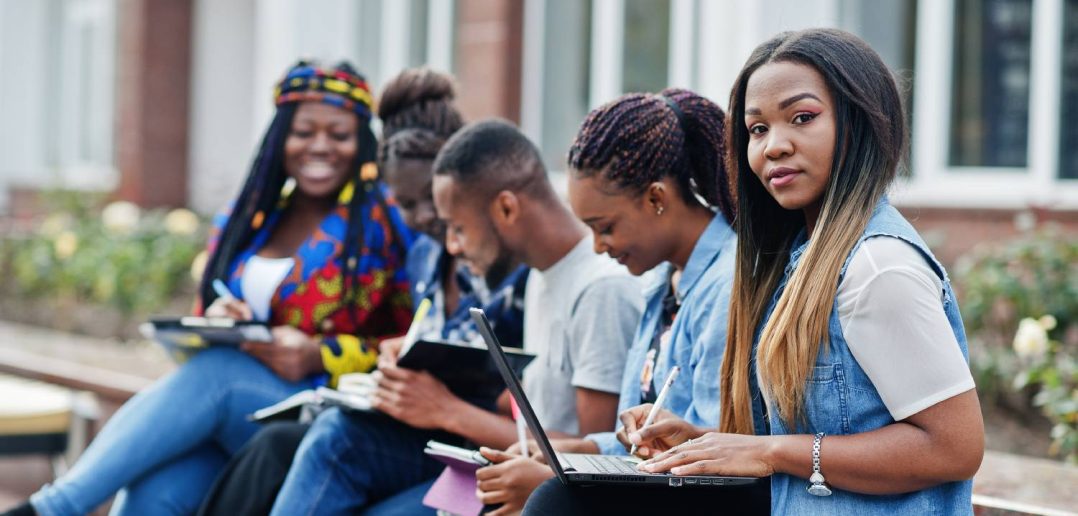In the classrooms of South Africa, students are learning how to code with hopes of creating future opportunities for themselves.
Coding4Mandela, an initiative honoring Nelson Mandela, strives to instill coding and technological skills in youth. The belief is that empowering young minds with digital literacy enhances their educational and professional development. Events like the Coding4Mandela Day Tournament expose students to technology, nurturing creativity and problem-solving.
SAS sponsored the Boys and Girls Clubs of South Africa (BGCSA) this year to participate in the Coding4Mandela Day Tournament on Mandela Day, which is celebrated each year on July 18, Mandela's birthday. The tournament is an annual event involving schools across Africa and is run by Tangible Africa, a partnership between Nelson Mandela University and the Leva Foundation.
In South Africa alone, around 10,000 learners participated in the tournament across 75 sites. The project now stretches across southern Africa, extending as far as Tanzania, Botswana, Zimbabwe, Zambia, Uganda, Kenya, Ghana, and Namibia.
Therefore, the project has a wide reach and perfectly encapsulates why we choose to support particular events.
1. It encourages the analytics ecosystem of the future
As an analytics company, we do a lot of work with universities to ensure that data science students have the real-world skills to thrive in the workplace. For example, we run hackathons to encourage coding and analytics to solve problems.
The Coding4Mandela Day Tournaments are similar. Since 2017, the project has reached more than 100,000 learners across more than 500 schools. Jean Greyling, the head of the computer science department at Nelson Mandela University, describes the tournament as a spark that ignites a passion for learning and a way to cultivate the coding ecosystem of the future.
And helping to secure the continent’s digital future is vital not only for economic prosperity but is foundational to creating trustworthy and responsible AI. If most, if not all, of the coding that underpins the AI technologies that will inevitably become ever more present in our daily lives, is done by people who live elsewhere in the world, this can lead to non-representative or biased outcomes.
As my good friend and Vice President of the Data Ethics Practice at SAS, Reggie Townsend, succinctly put it, “A future with encoded discrimination, bias and unequal access only perpetuates the worst of us, breeds technology distrust and vastly limits progress.”
2. It fosters digital inclusion across Africa
One of the key elements of the tournament is that it does not require computers. Instead, it uses the RANGERS coding app, developed by a student at Nelson Mandela University as part of his Computing Sciences degree in 2017. This means that users can code without requiring their schools to have computers. Coding kits are paid for by sponsors and distributed to participating schools.
This brings coding within reach of children who would otherwise never encounter it—and broadens their education and career options. Some of these children may become coders, data scientists or software developers—but even those who do not will need digital skills in the future.
3. It encourages children to take an interest in data science and technology
Many young people only encounter data science once they are well into degree courses at university or even beyond. At that stage, it may be much harder for them to acquire the qualifications or skills needed to become a data scientist—and many may decide it is not worth the extra work. When children encounter coding and data science early in their school careers, it is much easier for them to pursue their interests. They can choose the right school subjects to feed into the right degree areas.
This engagement with younger people is also behind SAS' sponsorship of other competitions and events, such as the SAS HBCU Invitational, which encourages student-athletes to learn about SAS and career opportunities.
4. It has knock-on effects on teachers and opportunities available to children in the future
What is particularly interesting—and impactful—about this tournament is its ripples across the pond of Africa’s education system. Sometimes competitions are just that: a single one-off event. Schools or institutions may participate over several years, but there is no other impact on the school or its pupils. That is not the case here.
Ryan Le Roux, CEO of the Leva Foundation, reports that teachers visibly grow in confidence when they start using tools and games supplied by the project. Many have gone on to start coding clubs at their schools, which makes learning about coding accessible to far more students over a far longer period. This, in turn, also fosters digital inclusion across the region and contributes to wider development.
I am proud of SAS’ contributions to this end and hope to champion many more such initiatives over the coming years.


1 Comment
Fantastic and meaningful effort! Very proud of all the ways SAS is building a sustainably future for tomorrow!